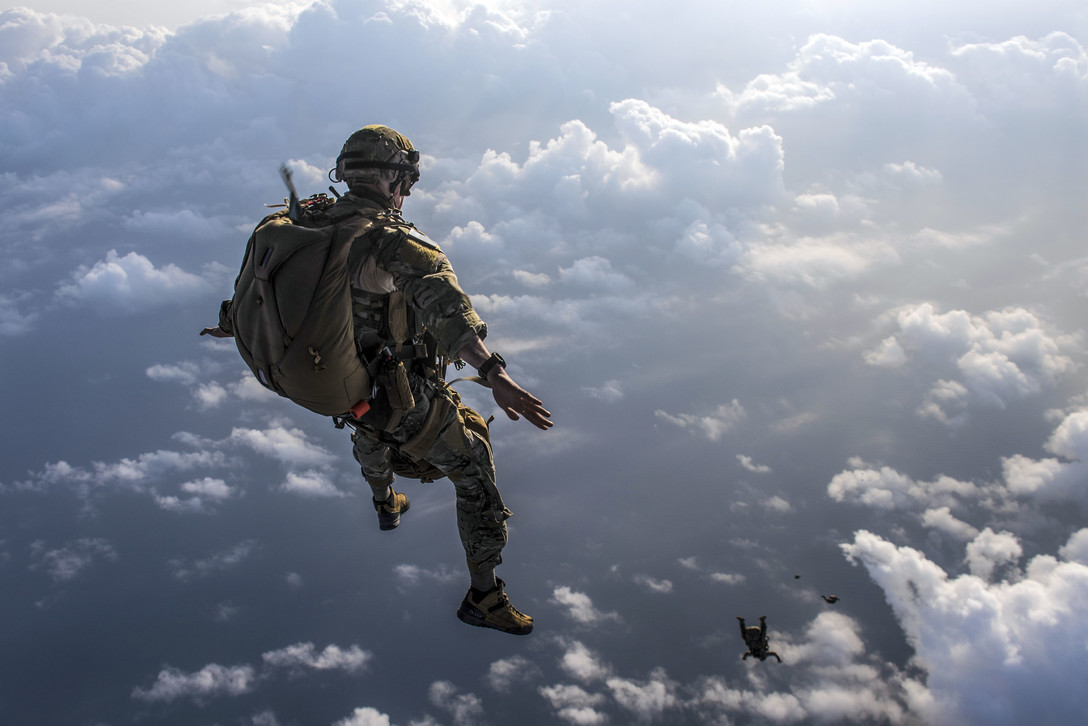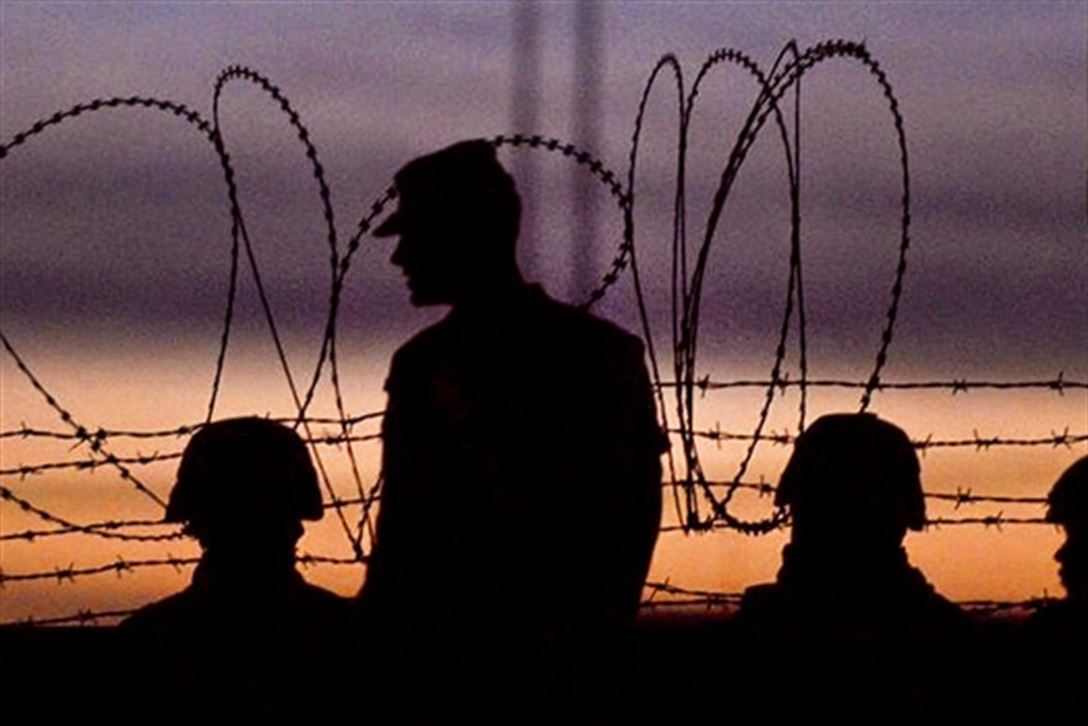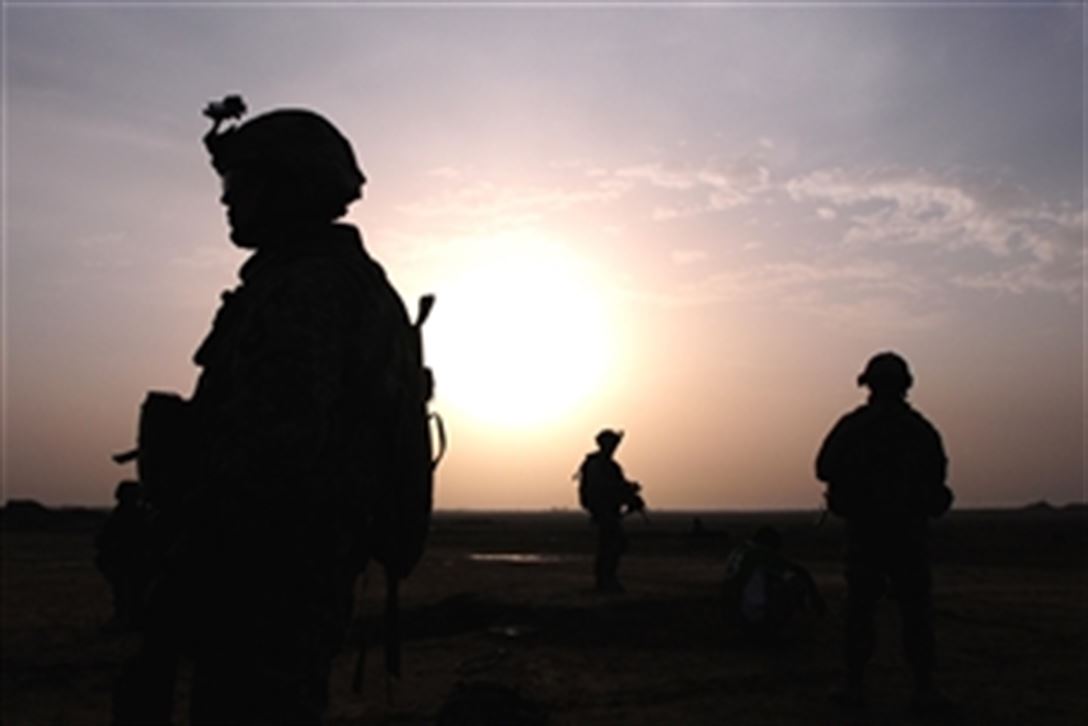![By US Army, Tom Lea [Public domain], via Wikimedia Commons](http://veteranmentalhealth.com/wp-content/uploads/2016/07/stare-300x264.jpg)
By US Army, Tom Lea [Public domain], via Wikimedia Commons
This post was originally posted as part of the American Counseling Association Blog Project. Original post can be located HERE
The mental health and wellness of those who have served in the military is of critical importance to the veteran, their family, and the community in which they live. There has been much discussion in many circles…the media, academia, the professional community…about the impact of combat, traumatic exposure, and military service on the psyche of the military veteran. It is both right and good that this is so; the fact that veterans sacrificed much in service to their country compels us to do all that we can to support them when they leave that service.
That being said, much of the conversation has been focused on two particular conditions: Posttraumatic Stress Disorder (PTSD) and Traumatic Brain Injury (TBI). This is also right and good; both of these conditions, one psychological and one physical, are debilitating, widespread, and insidious. Counselors who work with veterans, or who want to serve those who have served, will inevitably encounter one or both of these conditions with nearly every veteran they work with. PTSD manifests itself in observable behavioral changes as a result of the automatic response triggered by the limbic system. The veterans, either consciously or unconsciously, say to themselves, “I don’t feel safe anymore, so I need to do things that make me feel safe.” Hypervigilance, avoidance, seclusion, these are all visible manifestations of the emotional response. TBI, a physical injury to the brain, can lead to cognitive impairment, or the veteran’s thought, “I just can’t think straight anymore.” That old Psych 101 standby, Phineas Gage, showed us how physical injury to the brain can impact personality and behavior. If we start banging away at just those two nails, however, we will miss a bunch of other stray nails that can snag a veteran.
The problem is, PTSD and TBI aren’t the whole story when it comes to veteran mental health.
The challenges that veterans face are not just limited to the conditioned fear response generated by PTSD or the cognitive impairment caused by TBI. PTSD does not explain the sense of loss and shame that many veterans feel when they return from combat. TBI doesn’t explain the depression that results from a lack of a sense of purpose or alienation from a society that doesn’t fully understand what a veteran experienced in the military, let alone in combat. For those of us who work with veterans, it is critically important to understand the other challenges that veterans face.
Luckily enough, we have decades of psychological theory and research to guide us in examining the issues that go beyond PTSD and TBI. This is absolutely not an attempt at establishing a Grand Unification Theory of Veteran Mental Health, but instead a signpost on the path that may lead to greater understanding of, and therefore better care for, those veterans that we work with.
One of the most recent ideas to emerge from observing veteran behavior is the concept of Moral Injury, as described in Jonathan Shay’s book, Achilles in Vietnam and the work of Brett Litz and his colleagues. According to Dr. Litz (et al), Moral Injury can be defined as “Perpetrating, failing to prevent, bearing witness to, or learning about acts that transgress deeply held moral beliefs and expectations.” In other words, exposure to and participation in combat can cause veterans to change their deeply held core beliefs about what constitutes “right” and “wrong” behavior. In 2011, the nation was horrified when a video of a group of U.S. Marines urinating on enemy corpses was posted to the Internet. This act was horrifying and inexcusable. No veteran I have ever talked to has said that they condone this type of behavior…but every veteran I have talked to about this said that they understand how these Marines could have gotten to the place where they thought that was okay. This is, of course, a graphic and extreme example of moral injury, but it can impact veterans in an even more common manner. There are no stop signs in Afghanistan; one-way streets didn’t exist in Iraq. For the time that the veteran was deployed, there was a necessary suspension of the normal societal constraints that we all take for granted. For many veterans, we were the biggest, baddest kid on the playground, and when we traveled, others got out of the way. Imagine how it would feel if, after a year of these relaxed restrictions, you had to return to a world of stop lights and speed limits? Moral injury can cause a veteran to experience guilt, shame, and frustration, both at themselves and their community. You can read more about Moral Injury in this followup post.
In my experience, another that psychological concept that impacts veterans is the idea of Learned Helplessness, described in many areas but most clearly explained in Dr. Martin Seligman’s book, Learned Optimism. Without going into an extensive re-hashing of the concept of learned helplessness here, the condition is said to occur when someone feels powerless as a result of a traumatic event or repeated failure. Consider learned helplessness in the context of a veteran who is listening to his buddies engaging in a firefight over a radio net, but is unable to do anything about it. Or a Marine who is on perimeter guard, and sees an attack in the distance. Five miles in Afghanistan often could take an hour to navigate, but the veteran feels as though they “should” be able to “get there and do something.” After a while, the constantly reinforced idea that any action that the veteran takes will not result in the removal of the aversive stimuli will lead to learned helplessness, and ultimately depression. Then bring the veteran home, when they leave the service, and the thought is, “no matter what I do, I can’t get a job” or “nothing I do is good enough for my spouse, so why bother.” For many veterans, playing Call of Duty on the Xbox gives them a sense of accomplishment, and it’s something they’re good at…why attempt something that they’re not good at? My thoughts on Learned Helplessness can be found in this followup post.
Another concept that applies to veterans is needs fulfillment, as described in another one of those old Pysch 101 standbys, Abraham Maslow’s Hierarchy of Needs. Rather than focusing on whether or not those needs are met, HOW they are met is a struggle for some veterans. Returning from an environment that is extremely validating, provided the veteran puts forth the effort, a veteran must learn that the manner in which their needs were satisfied in the military and especially during combat is not comparable to the manner in which they need those same needs met in the “civilian world.” Physiological needs were often never questioned, as they were often provided to the service member: food, water, these things were readily available, if not always pleasant or palatable. Safety needs? Respond with aggression. Create safety where none exists. Belong/sociological needs were developed within a brotherhood that resulted from close proximity and shared experience…which breaks down quickly upon returning from combat, and is nearly nonexistent when the service member leaves the military. As we climb the pyramid of Maslow’s needs, the veteran experiences frustration and anger because the manner in which they formerly met these needs is no longer effective, even though they want them to be effective, because they worked, and the veteran was good at it. A look at how veterans need to learn how to satisfy needs in a new way can be found here.
Finally, a huge barrier that I have experienced in a veteran’s path towards wellness is an extreme sense of purposelessness. When I first read Frankl’s Man’s Search for Meaning, I was struck by the similarities between his description of concentration camp inmates who had lost the will to live and the sense of purposelessness that veterans experience after leaving the service. When the service member was in the military, they meant something. They were part of something that was bigger than themselves, and they felt personal satisfaction from their service. It was not always fun, and there were certainly some pointless moments, but overall, veterans felt a sense that their lives, their sacrifice, their endurance of hardship were of value and worth. What happens, then, when a Marine who was responsible for the lives of ten of their men and millions of dollars of sensitive equipment returns home, leaves the service, and gets a job washing windows? Or cars? Or construction? Or even something more, a solid job in a bank somewhere or a sales job…but still feels a lack of a sense of purpose? Conditioned response and physical injury to the brain does not describe the sense of frustration, apathy, and hopelessness that comes from a lack of meaning and purpose in a veteran’s life. The final post in this series, which discusses this topic, can be found here.
If you work with veterans, thank you for providing this critical need. Perhaps you have experienced some of the challenges described here. If you want to work with veterans, but don’t yet, please understand that there is much more going on with them than just PTSD and TBI. The challenges that veterans faced in their service to their country were many, they were difficult, and they were impactful. It is up to each of us…veterans, family members, and the community…to help them back to a place of wellness.




11 Comments
Matt Nicol · October 12, 2016 at 8:02 pm
Outstanding article and spot on! Purposelessness is so very important and something I still struggle with almost 4 years into retirement.
Duane France · October 12, 2016 at 8:30 pm
Matt, thanks for the feedback! Finding purpose and meaning in our post-military lives is critical to satisfaction, and something that is often overlook. Much appreciated!
Bel · February 4, 2017 at 1:27 pm
I’m with ya, Matt! I lost my purpose, too, upon retiring and had never done anything BUT be in the army. I’ve been out 3.5 years now and finally found my way again . . . via a divorce I didn’t want and getting back into “The Word.” God has shown me so, SO much and I’m happier for it. Called last year #YearoftheBel LOL
Bel · February 4, 2017 at 1:24 pm
My goodness, I’ve heard many things repeated here that a great Veteran friend of mind in peer networking talks about all of the time, specifically the moral injury portion. Most “civilians” aren’t aware of this particular mental health issue, let alone the veteran who’s suffering through it and not receiving assistance! I have to admit, that after returning from Iraq I struggled deeply with my experience and not because I was involved in any direct fire or things of that nature. Mine was more dealing with other people and how I was stressed the whole deployment . . . With that said, many mental health issues arise from the military situations and I wholeheartedly agree that we need more assistance in this area!
Just read in the Feb issue of the VFW magazine that Vets with PTSD could possibly be able to upgrade their discharges. Great to read this, as we all know that if your discharge doesn’t allow you to get VA assistance, then there goes the mental health help, too! Praying for all my brothers / sisters in arms, past, present, and future. ‘Murica
Moral Injury: The Impact of Combat on Veteran’s Individual Morality | Head Space and Timing · July 30, 2016 at 5:04 am
[…] a previous post, I discussed how veterans experience more challenges than just PTSD and TBI, the primary conditions that most community members are aware of. In order to provide some deeper […]
Veterans and Learned Helplessness | Head Space and Timing · August 6, 2016 at 5:43 am
[…] of articles that explores the psychological impact of a veteran’s military service that goes beyond PTSD and TBI, the concept of Learned Helplessness is a significant factor in veteran mental health. While many […]
Meaning, Purpose, and Veterans | Head Space and Timing · August 18, 2016 at 5:36 am
[…] and the challenges that veterans face in their transition out of combat and out of the military go beyond just PTSD and TBI. In my work with veterans, there seems to be a single significant concern: the lack of meaning and […]
Veterans and Maslow's Hierarchy | Head Space and Timing · October 8, 2016 at 5:34 am
[…] a continued effort to expand the topic of veteran mental health beyond PTSD and TBI, I thought that I’d give a deeper look into the mindset of the former military service member by […]
HST 003: British Veteran Mental Health with Matthew Green – Head Space and Timing · July 18, 2017 at 3:52 am
[…] Going beyond PTSD to the other mental health concerns […]
Veteran Mental Health Bootcamp: Beyond PTSD and TBI — Head Space and Timing · December 14, 2017 at 5:53 am
[…] written on the topic of looking beyond PTSD and TBI before. That series of posts was the genesis of this upcoming project. As I worked with veterans, I […]
The Difference Between Meaning and Purpose in Veteran Mental Health · February 21, 2018 at 4:53 am
[…] lives, as have many, many others. It’s one of the aspects of veteran mental health that go beyond just PTSD and TBI, and into places that medications can’t touch, coming to terms with the past can’t […]
Comments are closed.